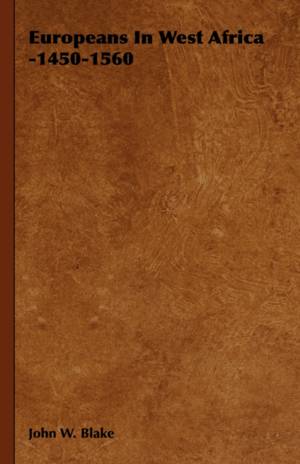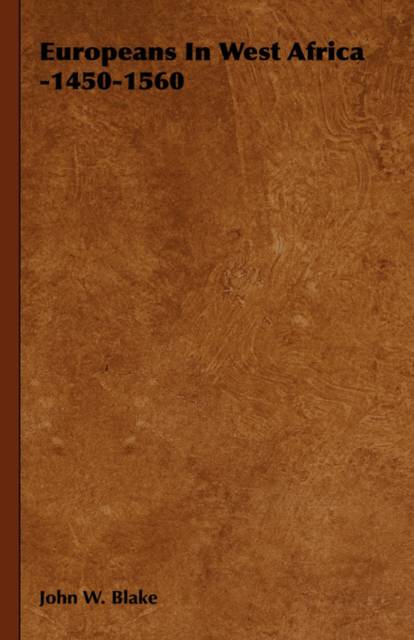
Bedankt voor het vertrouwen het afgelopen jaar! Om jou te bedanken bieden we GRATIS verzending (in België) aan op alles gedurende de hele maand januari.
- Afhalen na 1 uur in een winkel met voorraad
- In januari gratis thuislevering in België
- Ruim aanbod met 7 miljoen producten
Bedankt voor het vertrouwen het afgelopen jaar! Om jou te bedanken bieden we GRATIS verzending (in België) aan op alles gedurende de hele maand januari.
- Afhalen na 1 uur in een winkel met voorraad
- In januari gratis thuislevering in België
- Ruim aanbod met 7 miljoen producten
Zoeken
Omschrijving
EUROPEANS IN WEST AFRICA 1450-1560 By John W. Blake. PREFACE: The main object of this work is to present, as far as known records permit, a contemporary picture of conditions on the West African coast between Arguim and the equator during the first century of the Portuguese occupation. Some of the better-known contemporary works, written about this subject, have already been translated and edited for the Hakluyt Society. The writers whose works have thus been published, however, were concerned to tell the story of the discovery and settlement of Guinea by Prince Henry the Navigator and his successors only up to the beginning of the reign of King Manuel, and only to describe what had been achieved by the Portuguese'. Moreover, even those who wrote after the event, such as the competent historian Joao de Barros, saw the opening up of West Africa primarily as the prologue to the discovery of the sea-route to India, Accordingly, after outlining the progress of discover)along the West African coast down to the Cape of Good Hope, they then concentrated their attention upon the exploits of Portuguese soldiers and administrators in Indiu and the Hast and devoted little additional time or space to Guinea, It has resulted that contemporary accounts of the changing situation in West Africa, while fairly numerous for the fifteenth century, are difficult to obtain for the half century after 1508, Indeed, no comprehensive description of the coast seems to have been produced between 1507, when Valentim Fernandea compiled his Coltwtim ufiuwsf and the appearance of Captain
Specificaties
Betrokkenen
- Auteur(s):
- Uitgeverij:
Inhoud
- Aantal bladzijden:
- 292
- Taal:
- Engels
Eigenschappen
- Productcode (EAN):
- 9781443724470
- Verschijningsdatum:
- 4/11/2008
- Uitvoering:
- Hardcover
- Formaat:
- Genaaid
- Afmetingen:
- 140 mm x 216 mm
- Gewicht:
- 517 g

Alleen bij Standaard Boekhandel
+ 64 punten op je klantenkaart van Standaard Boekhandel
Beoordelingen
We publiceren alleen reviews die voldoen aan de voorwaarden voor reviews. Bekijk onze voorwaarden voor reviews.









